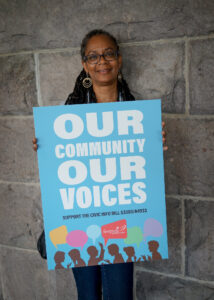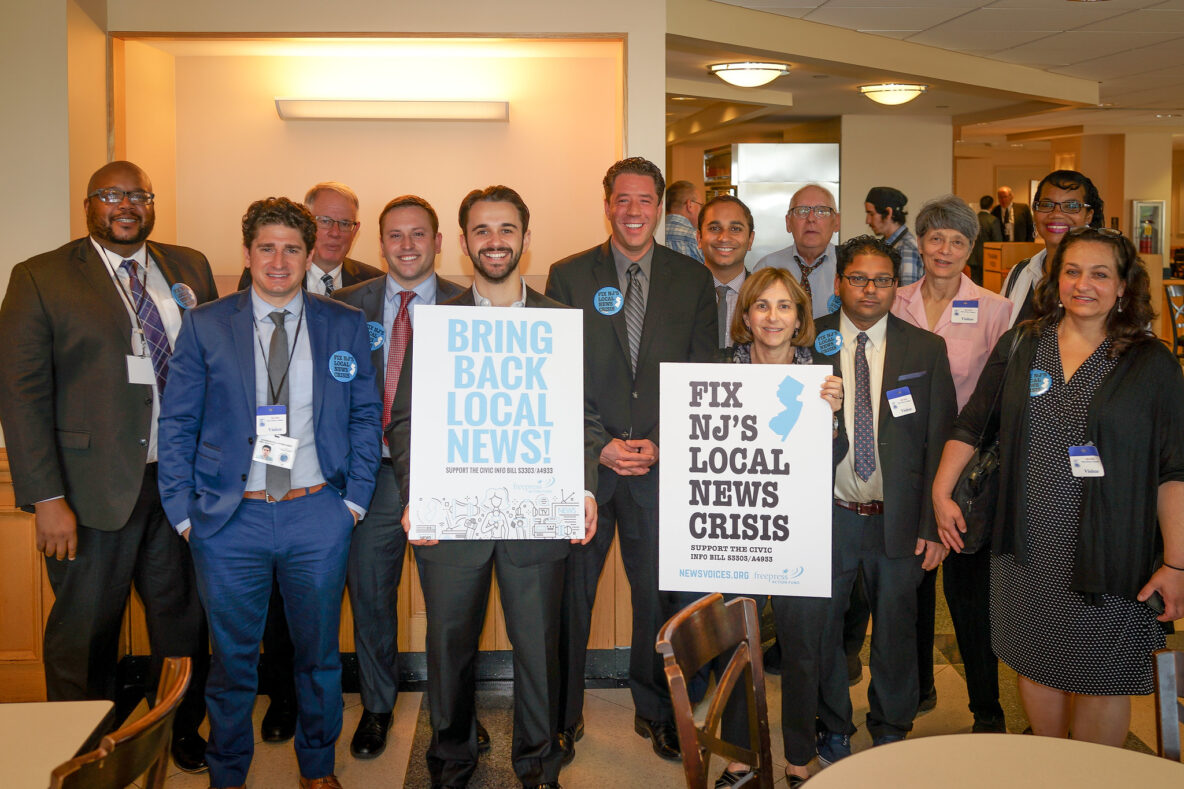A few years ago, it would have been surprising to see public policy as one of four pillars in a nationwide campaign to support the future of local news. While government action and policy have always shaped media and journalism in America—and nearly all other democratic nations feature a strong public media sector—modern debates about the sustainability of local news have often ignored or avoided discussions about public financing. The fact that Press Forward made public policy a core tenet of its strategy speaks to significant shifts in how many Americans have come to understand local news as a public good, and its role in a healthy democracy.
The changes confronting our public square in America today can feel unique—technological, economic, and social upheaval have created a seemingly perfect storm. Yet, throughout our nation’s history, new developments in how people connect and communicate have been followed by public policy decisions that have at times enabled, and other times undermined, the role of news media in our democracy. Thankfully, our history is also full of examples of when philanthropy, media makers, civic leaders, and communities have rallied together to advance new structural ideas that expanded people’s access to local news, community voices, and civic information.
The last century saw the establishment of the Carnegie libraries, the founding of the National Endowment for the Arts, and the Corporation for Public Broadcasting—each the result of a mix of community activism, philanthropic leadership, and smart policy that created new local and national structures to support entire new sectors of civic life rooted in news and information.

Free Press Action Fund members, allies and staff met in Trenton, NJ to urge legislators to speak up for the Civic Info Bill. Image by Free Press on Flickr.
In our modern era, the Independent TV Service (ITVS) was established in 1988 as a response to the lack of diversity in public television (it has been called “a miracle of public policy created by media activists, citizens and politicians”). And after a decade of campaigning from community media, civil rights, and rural civic leaders, the 2011 Local Community Radio Act opened the door to thousands of new nonprofit low-power community radio stations around the country.
There is much we can learn from these past movements. Even celebrated policy wins of the past often didn’t deliver the same benefits to communities of color, low-income families, and linguistically diverse communities.Today we have the opportunity—and the mandate—to reimagine public policy that helps us rebuild local news that supports and advances an inclusive, multiracial democracy. This means we can’t leave policy debates up to big media and tech companies alone.
At Press Forward, we envision a future in which reliable, trusted local news is available in every community across the country. To sustain this vital civic infrastructure, a diverse blend of revenue—from local individuals and community-minded businesses, local and national philanthropy, and public financing through creative federal, state and municipal policy—will ensure independence and resiliency.

The authors (l – r) Darryl Holliday, Jenny Montoya Tansey and Josh Stearns.
In the year since Press Forward launched, there have already been some new, notable local news policies passed across the country. According to the Rebuild Local News Coalition, wins in New York, New Jersey, California, Illinois and Washington may generate up to $107 million for local newsrooms in 2025. Each of these states has approached local news policy differently, and not every outlet that should benefit will. But together, these policies—and the campaigns and coalitions that advanced them—provide many opportunities to explore, learn, and build from.
This context sets the stage for Press Forward’s work on public policy. We will be guided by the four pillars of our strategy and the campaign’s core values. And over the past six months we have also worked with Press Forward partner funders and field leaders to develop a set of policy principles for our work in this area. We believe that policies aimed at funding and supporting local news must:
- Prioritize original, community-centered local news and access to public information across all platforms and organizational types, ensuring policies support both traditional and emerging models.
- Maximize long-term, sustainable revenue sources, including public dollars, for local news over temporary funding that does not build financial stability for the future.
- Promote local ownership and leadership in the news industry, with a focus on expanding opportunities for communities of color, low-income and rural residents, and non-English speaking communities, fostering reporting that reflects the perspectives of all community members and supports active civic engagement.
- Protect journalistic independence and integrity outlined in the First Amendment and ensure federal, state, and municipal policies do not allow policymakers to decide which outlets receive funding.
There is an emerging field of organizations—across both national coalitions and local campaigns—working to advance policies that respond to local needs and opportunities. Some groups have been fighting for public interest media reform for decades, others forming new coalitions rooted in the changing landscape of local news today. Press Forward’s role is not to set the strategy for this work, that is the role of advocates and community leaders. But we can help set the table for cross-pollinating ideas, weaving networks, and of course funding the folks on the ground and closest to the work. By listening to journalists, advocates, and researchers, we have identified a few key areas for strategic investment to make our vision a reality:
- Coalition Building – We need to engage leaders across journalism and media, to come together around a shared common cause, language, and solutions. But critically, we also need to grow the coalition advocating for local news policy beyond journalists and media makers, because local news touches every other issue people care about.
- Policy Development and Research – We need to develop more model policies, research open questions, monitor implementation of new policies, and explore long-term impacts.
- Case Making – We need better narratives, stories, and messaging about both the need for public policy solutions and how stronger policy can serve local communities. We also have to translate the research and models we have into materials for policymakers and philanthropic leaders.
Over the coming months, Press Forward will continue to learn, adapt and organize around public policy through our policy working group, which consists of about 40 funders across the country committed to helping move the needle on smart, First Amendment-friendly public financing ideas. Aligned funders have already made some investments in this field, and in the coming months we expect to make a small number of targeted grants (by invitation) to both national organizations and local campaigns. We will share more in early 2025.
Darryl Holliday is a policy consultant for Democracy Fund Voice, and cofounder of Commoner Co., a civic strategy consultancy. Jenny Montoya Tansey is Senior Program Officer, Just Democracy at Skyline Foundation. Josh Stearns is Senior Director, Public Square Program at Democracy Fund and Democracy Fund Voice.
If you are a funder interested in joining Press Forward’s public policy working group, please contact Darryl Holliday at (darryl@darrylholliday.com).
Image: Free Press Action Fund members, allies and staff rally for New Jersey’s Civic Information Bill. Image courtesy of Free Press Action Fund on Flickr.

